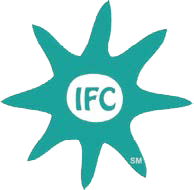“You should be so proud of yourself.”
I’ve heard this a lot as a large consumer of healthcare services who has been conditioned to navigate bureaucratic red tape and exhaustive care planning. Despite hearing this phrase often, I distinctly remember times I wasn’t “proud” of myself, such as the process I endured to get my mom approved for Aid and Attendance.
VA Aid and Attendance provides monthly payments for qualified Veterans and spouses. As a surviving spouse, mom met this requirement as a patient needing assistance with everyday functioning. A claim needs to be filed with the pension management center along with several forms and required evidence including a doctor’s report and details about the illness.
In addition to being a lengthy process, there are complex considerations for Aid and Attendance eligibility — age, period of military service, discharge status, income limits, and assets. It is unusual for a non-expert to successfully navigate this process which is the reason such applications are often handled by an attorney. After nearly 9 months of working through the required documentation, having the application returned for one reason or another, countless telephone calls, and setting up the required fiduciary account, I succeeded. Mom was awarded the benefit.
Even though Mom had been admitted to a skilled nursing facility “Medicaid Pending,” we urgently needed resources and, quite frankly, there was no wiggle room in the budget for legal services.
So, excuse me if what I felt hearing this compliment didn’t translate into pride in myself but something closer to relief, along with annoyance and some anger, that I had survived the process. I recall asking myself: Why is this so hard?
Here is another example of what I’m talking about.
After the challenges of Crohn’s Disease over 40+ years, I had ileostomy surgery about three months ago. There were complications requiring a longer than anticipated hospitalization. After discharge I wrestled with the normal anxiety associated with figuring out a suitable appliance for the location of my stoma.
During a longish telephone call about ostomy supplies with the 3rd manufacturer, imagine my surprise when a reference was made to a home health nurse. As in, “when is your home health nurse coming again?” This option had only been mentioned in passing toward the end of my hospitalization. In fact, I was implicitly discouraged from pursuing home health services. I now realize a better decision could have been made, lots of anxiety avoided, fewer expensive supplies ordered out of pocket, and fewer sleepless nights if adequate support and education had been provided to me during discharge planning. Who knew MANY other people were using home health while I was powering through a process fraught with uncertainty?
Worration, I tell you!
In my follow-up visits, of course I was anxious. I can only imagine the notes in my medical record, but those opinions are not top of mind for me anymore. My energy is better spent thinking about questions to ask during my appointments.
Such difficulties are becoming a normal part of life as we navigate supply chain shortages, scaled back hours, employee shortages, mergers, and unnecessary dishonesty. I have no expectation that the way will be made plain or straight. A long history of Crohn’s Disease has taught me to lower my expectations, double down on advocating for myself, and prepare for the persistence that is usually required in a changing healthcare delivery system.
This is what I know: there is no advantage to living in silence or in fear of people, processes, loss, disappointment, slights, or change. I have questions. Lots of them. And I’m going to ask them.
I’m not so much proud as I am determined to get the healthcare attention, support, and quality guidance needed to lead a full life.
-Willetha
